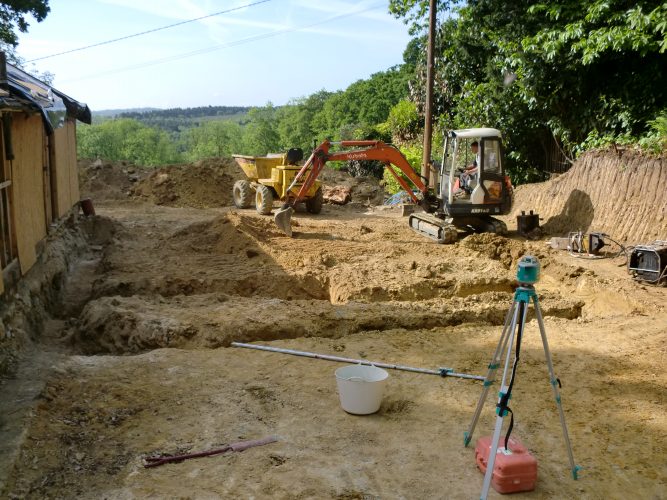You will find some fantastic examples of block paving in Cambridge, which add charm to the outside spaces in which there’re able to be found. Paving bricks are available in a variety of forms and colours and provide steady, reliable surfaces underfoot. All are tough for many years of low-maintenance service. The kind of block chosen will determine the kind of upkeep needed. Correct, typical upkeep will make sure your block paving investment is protected for the long term.
Types Of Block Paving
Be sure to know which sort of paving is installed before carrying out upkeep. Typically, you’ll find two types of block paving offered, permeable and impenetrable. A porous block paving is produced so that water can run through it, and drain in to the ground beneath. An impervious paving does not allow water to flow through it, but rather, water flows over surface of your paving and over adjoining surfaces. Impervious paving can be installed to allow water to drain between the paving, giving it a equivalent element towards the permeable paving. Permeable paving could be a lot more delicate than impermeable paving, and roughly applied upkeep procedures might cause premature crumbling of edges and corners.
The kind of block selected also can depend on the purpose and location of the installation. Environmental aspects play an increasingly significant part in the management of water in metropolitan locations. Impenetrable paving guides storm water into water treatment plants but is typically more durable than porous blocks. Porous paving allows storm runoff to be purified by the ground upon which it falls. Permeable paving is now the most preferred alternative since it reduces stress on public water treatment services.
Damaged Paving Could Mean Trouble
Damaged paving could indicate incorrect installation. Replacing these might be necessary to stop falls. When replacing blocks, be sure to verify the base over which they have been installed. Installation of either kind of block paving is very similar. The earth under is excavated of all-natural soil and filled with gravel and sand. This kind of base provides stability for the paving and will prevent them from damage down the road.
Maintenance Tips To Retain Function And Beauty
Both types of paving are going to require regular maintenance to retain their beauty and function. Over time, the gaps between impervious blocks will grow to be blocked with dirt and other debris, which will inhibit their drainage function. It can be anticipated that this accumulation of silt will result in a sluggish loss of function over time; research show it stabilises out among 3 to six years. www.eks-construction.co.uk
Regularly brushing off debris will stop staining and also the development of moss or unwanted weeds. When silt, moss or weeds grow to be uncontrollable, a power washer may be employed to remove them. However, care has to be taken to not dislodge too much of the jointing sand between the paving stones. More caustic cleaners applied with a soft brush might be required for persistent unsightly stains or grounded moss and mildew. Make sure to add additional joint sand if any was dislodged. Appropriate sanding will retain the stability of the block and sealing the blocks could reduce or eliminate upkeep completely.

